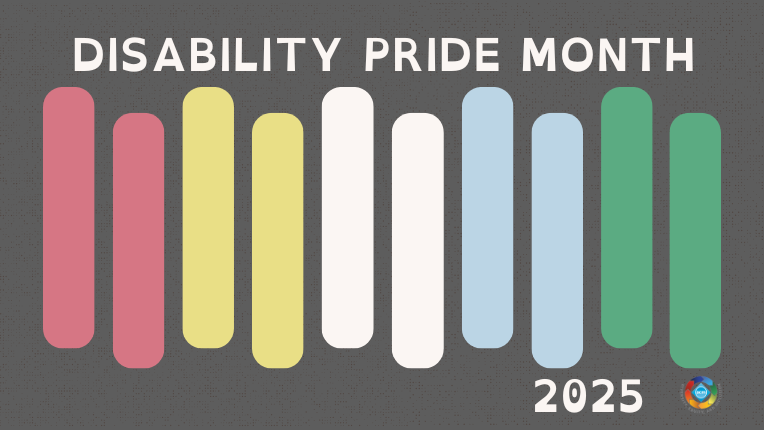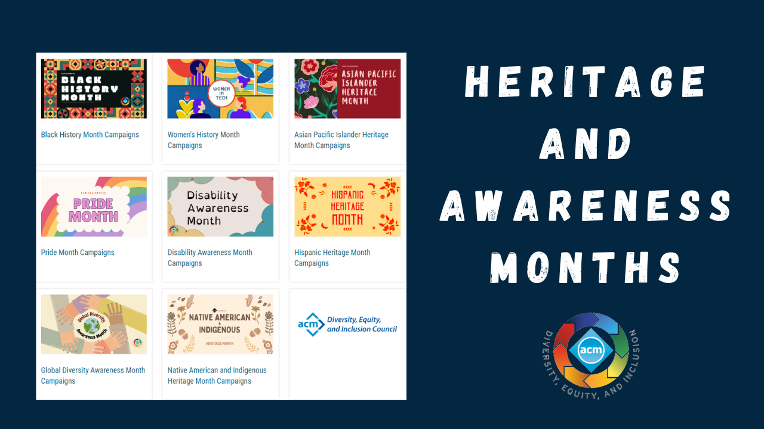Celebrate Disability Pride Month with ACM

July is Disability Pride Month and ACM is proud to recognize the contributions of disabled computing professionals. In 2025, ACM will highlight the significance of assistive technologies in cultivating inclusive environments. From screen readers to mobility aids, assistive technology plays a vital role in transforming workplaces, classrooms, and daily life for all. Disability Pride Month offers an opportunity to reflect on the assistive technologies that we use or supports us. Stay tuned as we share more throughout Disability Pride Month.

Co-Designing Personalized Assistive Devices Using Personal Fabrication
Around 650 million people in the Asia-Pacific region live with disabilities, yet many lack access to essential assistive technologies. The article “Co-Designing Personalized Assistive Devices Using Personal Fabrication” examines how this lack of access could lead to exclusion and explores how creating customized user-centered designs could bridge that gap. Read the full article on the Communications of the ACM.

Computing and Assistive Technology Solutions for the Visually Impaired
In low-income countries, individuals who need assistive technology often face difficulties obtaining them due to high costs and limited availability. Assistech, a lab founded at IIT Delhi, addresses these challenges by developing user-centered and affordable solutions designed to meet the needs of visually impaired individuals. From SmartCane to tactile graphics, “Computing and Assistive Technology Solutions for the Visually Impaired” showcases Assistech’s current and upcoming innovations aimed at making assistive technology more accessible and affordable. Read the full article on the Communications of the ACM.
‘What I Think about When I Type about Talking’: Reflections on Text-Entry Acceleration Interfaces
Text-based augmentative and alternative communication (AAC) devices empower nonspeaking individuals with motor disabilities to communicate through text or synthesized speech. While AAC supports participation in everyday life, many users still face limitations when it comes to interactive real-time communication. “Reflections on Text‑Entry Acceleration Interfaces” introduces GenieTalk, a system designed to address these challenges and improve AAC conversations. Read more of this article on the Communications of the ACM.
‘What I Think about When I Type about Talking’: Reflections on Text-Entry Acceleration Interfaces from the May 2025 Communications of the ACM issue.
Computing and Assistive Technology Solutions for the Visually Impaired from the 2022 India Regional Special Section.
Technology solutions for accessibility have long been created using a narrow utilitarian lens, especially in the Global South due to multi-dimensional challenges and resource constraints—an emphasis on purely functional outcomes supported by sterile cost-benefit analysis that ignores the fact that people with disability are people first with their own aspirations for leisure and enjoyment in addition to skills and employment. Microsoft Research propose an alternate design methodology called the Ludic Design for Accessibility (LDA) that puts play and playfulness at the center of all assistive technology design and use.
IIIT Bangalore's mission for accessibility and inclusivity.
Awareness Months Archive
Embracing diverse perspectives, backgrounds, and experiences enrich the ACM community and strengthen ACM's ability to support the global computing community. Awareness months are a time dedicated to reflection, education, and engagement to understand and embrace the diverse membership within the ACM community. Our archive display the past and current celebrations ACM have created to foster an inclusive and equitable environment for all within the computing community.

How Diverse Is Your Team?
ACM's Diversity, Equity, and Inclusion Council is an essential resource for SIGs, conferences, boards, and councils looking for best practices to improve diversity in their organization and develop programs with a broader reach in the computing community. Our guide provides examples of both inherent and acquired characteristics, which should be taken into consideration when looking at ways to improve the diversity of your team.

Words Matter
As part of ACM’s efforts to combat exclusion in the computing profession, ACM's Diversity, Equity, and Inclusion Council has launched an effort to replace offensive or exclusionary terminology in the computing field. They have developed a list of computing terms to be avoided in professional writing and presentations and offer alternative language. The Council plans to expand this list in the future and invites the community to submit suggestions for consideration.
